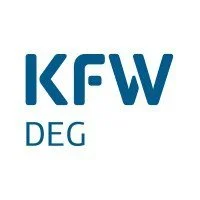Introducing Investors for Health
background
At least half of the world’s population still lacks access to essential healthcare services.
At least half of the world’s population still lacks access to essential healthcare services.¹ Low- and middle-income countries bear the brunt of inadequate healthcare systems, with 75% of global preventable deaths occurring in low- and middle-income countries.²
The United Nations Sustainable Development Goals (SDGs) include an ambition to achieve Universal Health Coverage by 2030,³ but there is a significant funding shortfall to do so. The World Health Organization has identified an annual funding gap of $134 billion to achieve Universal Health Coverage in low- and middle- income countries; by 2030, this shortfall would increase to $371 billion annually.⁴
Given the current funding gap, we will not achieve universal health coverage without leveraging existing private sector capacity, investment, and innovation.⁶ However, there is risk that private sector approaches can inadvertently undermine the goal of universal health coverage – for example, by diverting resources away from public health systems and the most underserved populations.⁷
Before Investors for Health, there was no community of investors dedicated to building inclusive healthcare systems. Today, there are over 20 member funds within Investors for Health. Our members are development finance institutions (DFIs), private equity funds, venture capital funds, impact investors, pension funds, and large conglomerates who are investing across Asia, Latin America, Africa, Australia, the U.K., the United States, and Europe.
OUR MEMBERS
Investors for Health Executive Committee
The Executive Committee sets the strategic direction for Investors for Health, ensures that the activities of the Community are aligned with the mission of the group - and ultimately manages risk, oversight, and decision-making functions.
The Investors for Health Executive Committee is comprised of representatives from four entities: British International Investment, The International Finance Corporation (IFC), Quadria Capital, Alta Semper, and Dalberg Advisors.
BRITISH INternational investment
British International Investment (formerly the CDC Group) helps solve the biggest global development challenges by investing patient, flexible capital to support private sector growth and innovation. It is the world’s first impact investor with over 70 years of experience of successfully supporting the sustainable, long-term growth of businesses in Africa and South Asia. CDC is a UK champion of the UN’s Sustainable Development Goals – the global blueprint to achieve a better and more sustainable future for us all. The company has investments in over 1,200 businesses in emerging economies with total net assets of £6.5bn and a portfolio of £4.7bn.
international finance corporation
IFC—a member of the World Bank Group—is the largest global development institution focused on the private sector in emerging markets. IFC works in more than 100 countries, using our capital, expertise, and influence to create markets and opportunities in developing countries.
quadria capital
Quadria Capital is an independent healthcare focused private equity firm with assets under management exceeding US$ 2.2 billion and investments in 21 companies across the Asia-Pacific region. The firm focuses on partnering with promising regional healthcare companies and, with their active investment strategy, helps them grow into regional leaders, while creating and delivering outstanding returns to its investors.
Alta Semper
Alta Semper, founded in 2015, is a dedicated impact private equity firm investing flexible and strategic capital in healthcare, consumer and enabling technology opportunities across growth markets, particularly the African continent. The sector focus and expertise of the team is an important component of the investment strategy and an asset to the portfolio companies with which we are actively engaged. Alta Semper fosters collaboration by forging lasting partnerships with like-minded companies and founders, to help them grow, enter new markets and launch new products. Alta Semper has assembled a closely-knit integrated team with over a century of combined specialist experience. The firm is headquartered in London with additional locations in Cairo, Lagos and Nairobi.
dalberg
Dalberg works to build a more inclusive and sustainable world where all people, everywhere, can reach their fullest potential. Dalberg’s businesses provide high-level strategic, policy, and investment advice to the leadership of key institutions, corporations, and governments, working collaboratively to address pressing global problems and generate positive social impact.
Dalberg Advisors is a strategic advisory firm combining the best of private sector strategy skills and rigorous analytical capabilities with deep knowledge and networks across emerging and frontier markets. Dalberg Advisors provides oversight of Investors for Health operations, community management, and strategic activities.
Dalberg Catalyst is a 501(c)(3) organization that generates and brings to life multi-stakeholder initiatives to address today’s most critical social and environmental challenges. Dalberg Catalyst collaborates with leading partners and funders from across the private, public, and social sectors, while leveraging the deep knowledge, experience, and skills of the Dalberg Group. Dalberg Catalyst serves as the fiscal sponsor for the Investors for Health community.
current Executive Committee Representatives
Interested in membership?
Page Sources: [1]: Primary Health Care on the Road to Universal Health Coverage: 2019 Global Monitoring Report. World Health Organization, 2019. [2]: Tracking universal health coverage: 2017 Global Monitoring Report. World Health Organization and World Bank, 2017. [3]: “Goal 3: Ensure healthy lives and promote well-being for all at all ages.” Untied Nations Sustainable Development Goals. https://www.un.org/sustainabledevelopment/sustainable-development-goals/ [4] Melanie Bertram et al. “Financing transformative health systems towards Sustainable Development Goals: a model for projected resource needs in 67 low-income and middle-income countries.” The Lancet, 17 July 2017. https://doi.org/10.1016/S2214-109X(17)30263-2 . [5] “SDG Costing and Financing for Low-Income Developing Countries.” Sustainable Development Solutions Network: A Global Initiative for the United Nations, 2019. [6] “Business and the SDGs.” United Nations Development Program. https://www.sdg-accelerator.org/content/sdg-accelerator/en/home/sdg-presa/SDGbiz.html [7] Primary Health Care on the Road to Universal Health Coverage: 2019 Global Monitoring Report. World Health Organization, 2019.











































